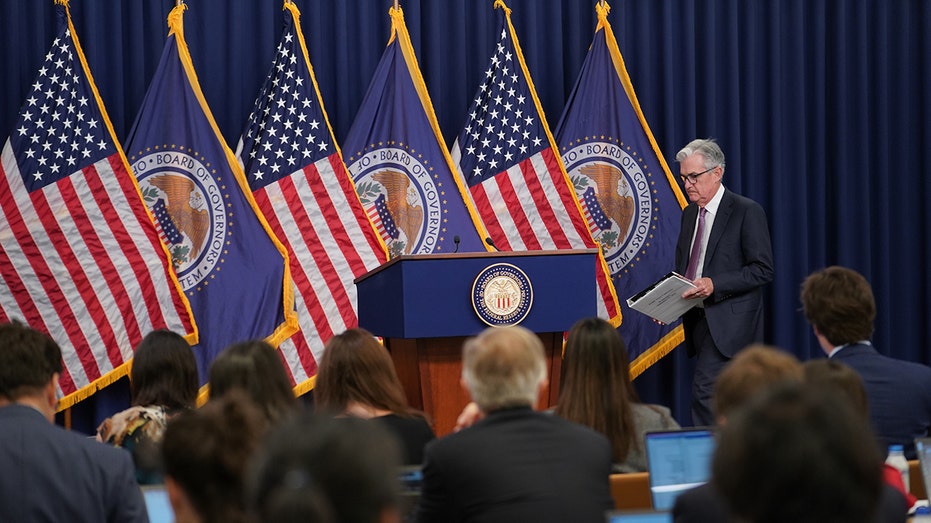Stock market could plunge another 24% next year, Bank of America warns
S&P 500 could tumble to 3,000 at end of 2023 amid market volatility
Fed tapering could lead to a rebound in tech stocks: Kyle Wool
Revere Securities non-executive chairman Kyle Wool discusses whether the Fed will continue to aggressively hike rates at December's FOMC meeting on 'Varney & Co.'
The stock market is not out of the woods yet and could face further volatility next year as a result of the Federal Reserve's quantitative tightening, according to Bank of America strategists.
In an analyst note this week, the analysts led by Savita Subramanian warned the Fed's shrinking of its balance sheet could fuel liquidity risks in different areas of the market.
Bank of America projected a base-case scenario of flat returns in 2023, with the S&P 500 finishing the year at 4,000 – up just 0.9% from Monday's close.
But it warned of major volatility in the market throughout the year and said that in a so-called bear-case scenario, the S&P benchmark index could tumble another 24% from current levels to 3,000.
ECONOMIC INDEX FLASHES MAJOR RECESSION WARNING SIGN

Jerome Powell, chairman of the U.S. Federal Reserve, arrives to speak during a news conference following a Federal Open Market Committee (FOMC) meeting in Washington, D.C., on Sept. 21, 2022. (Photographer: Sarah Silbiger/Bloomberg via Getty Images / Getty Images)
In the case of a bull market, Subramanian estimated the S&P could close out the year at 4,600.
The uncertainty stems from the "unprecedented leverage risk" in governments and central banks, which could lead to liquidity risks popping up in "odd places" as the Federal Reserve reduces its roughly $8.6 trillion balance sheet at a pace of $95 billion a month.
INFLATION FIGHT COULD LAST UNTIL 2024, FED OFFICIAL WARNS
The Fed began unwinding its balance sheet in June, deploying one of its lesser-known tools to combat the hottest inflation in decades. The balance sheet, which consists mostly of bonds and other assets that it has purchased, nearly doubled in size during the pandemic as the Fed bought up mortgage-backed securities and other Treasurys in order to keep borrowing cheap.
Policymakers say the portfolio runoff will work in tandem with a series of aggressive interest rate increases to bring prices down by slowing growth and tightening credit.
Market 'has some legs' headed into the holidays: Brad McMillan
Commonwealth Financial Network CIO Brad McMillan says a Fed pivot on rate hikes would be a 'real tailwind' for markets.
The Fed has also voted to raise interest rates at six consecutive meetings, including approving four 75-basis-point rate hikes, as it tightens policy at the fastest pace since the 1980s. Even though inflation cooled slightly last month – the consumer price index rose 7.7% annually, the slowest pace since January – officials have shown no signs of slowing rate increases.
CLICK HERE TO READ MORE ON FOX BUSINESS
"Let me say this," Fed Chairman Jerome Powell told reporters on Nov. 2. "It is very premature to be thinking about pausing. When people hear lags, they think about pauses. It's very premature, in my view, to talk about pausing our rate hikes. We have a way to go."
There is a growing concern among economists and some lawmakers over the impact of higher interest rates on the U.S. economy, and there is a broad consensus on Wall Street that the Fed will trigger a recession with its war on inflation.






















